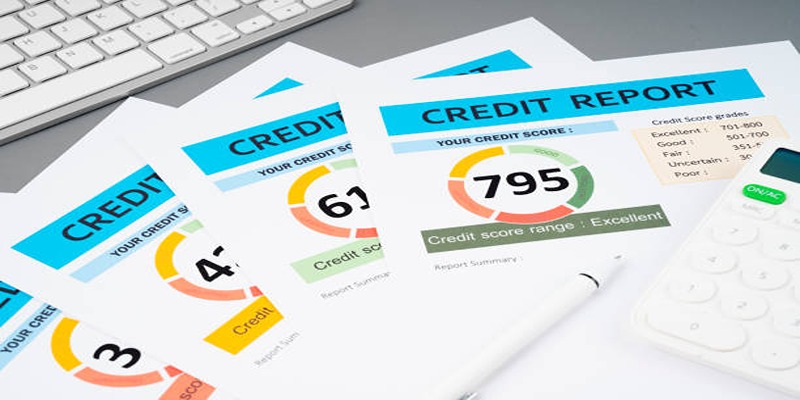Your credit score is key to your financial health, affecting loan approvals and interest rates. However, myths about how it works are everywhere. A common question is, "Does checking my credit score lower it?" Rest assured, it doesn’t—at least not when you check it yourself. Learn how credit scores work, the types of credit checks, and why staying informed helps your financial well-being.
What Is a Credit Score?

A credit score is a three-digit number used by lenders to determine your creditworthiness. Think of it as a snapshot of your financial health, revealing how well you manage debt and repay loans. Scores typically range from 300 to 850, with higher scores signaling to lenders that you're a lower-risk borrower.
Credit scoring models, such as FICO and VantageScore, calculate your score based on factors like:
- Payment history (Are you paying your bills on time?)
- Credit utilization (How much of your available credit are you using?)
- Length of credit history (How long have your accounts been active?)
- Credit mix (Do you have a balanced mix of credit types like credit cards, personal loans, etc.?)
- New credit inquiries (How recently have you applied for credit accounts?)
Understanding your score can better prepare you for financial success, but does checking it come with a price? Let's find out.
Hard Credit Checks vs. Soft Credit Checks
The confusion about whether checking your credit score lowers it often stems from misunderstanding the difference between two types of credit checks: hard inquiries and soft inquiries.
Hard Credit Checks
A hard credit check happens when a lender examines your credit report to determine if you qualify for a loan or credit card. This typically takes place when you apply for a mortgage, auto loan, or a new credit card as part of their evaluation process.
Hard inquiries may lower your credit score by a few points, but multiple inquiries in a short time can signal risk to lenders and cause a bigger drop in your score.
Soft Credit Checks
Soft inquiries, on the other hand, do not affect your credit score. These happen when you or someone else checks your credit for non-lending purposes, such as:
- Checking your own credit score.
- Receiving pre-approved credit card offers.
- Employer background checks.
Whether you're browsing through a credit monitoring app or pulling your report from a free credit bureau service, checking your own credit score is always a soft inquiry and has no negative impact on your rating.
Does Checking Your Credit Score Lower It?
Now that you've grasped the difference between hard and soft checks, here's the clear answer: Checking your credit score does NOT lower your credit score.
When you're checking your score through tools like credit bureaus or financial apps, you're initiating a soft inquiry. This action is recorded, but it is invisible to lenders and has zero effect on your score.
If you've avoided checking your score due to fear of hurting it, rest assured that this is purely a myth.
Why You Should Regularly Monitor Your Credit Score
While checking your credit score doesn't lower it, keeping tabs on your numbers regularly offers several advantages. Here’s why you should make it a habit:
1. Stay in Control of Your Financial Health
Your credit score is an indicator of your overall financial wellness. Regularly checking ensures you're aware of where you stand and can spot any areas that need improvement, such as paying down credit card balances or reducing late payments.
2. Detect Errors and Prevent Fraud
Credit reports aren't immune to mistakes. Regular monitoring allows you to catch errors, such as accounts you didn’t authorize, incorrect balances, or reported late payments you actually paid on time. Reporting errors early can prevent your score from suffering due to inaccuracies.
3. Prepare for Major Financial Goals
Are you planning to buy a home, finance a car, or start a new business? Knowing your credit score can help you take action to improve it before applying for loans, ensuring you're in the best position to secure favorable terms.
4. Track Your Progress
If you're actively working to boost your credit score, keeping an eye on it is the best way to measure your progress. It may also motivate you to stick to healthy credit habits.
Tips for Maintaining a Healthy Credit Score
Beyond knowing how credit checks work, understanding best practices for maintaining a strong score is vital for long-term financial stability. Here are some proven tips to keep your score in great shape:
- Pay Bills on Time: Payment history accounts for 35% of your score, so consistently paying bills by their due dates is key.
- Keep Credit Utilization Low: Aim to use less than 30% of your available credit limit to demonstrate responsible usage.
- Limit New Credit Applications: Space out credit applications to reduce hard inquiries on your report. Applying for multiple accounts in a short window could signal financial distress to lenders.
- Build Credit History: The age of your accounts matters. Keep older accounts open (even if unused) to lengthen your credit history.
- Check Your Report Annually: The Fair Credit Reporting Act lets you access a free annual credit report from Equifax, Experian, and TransUnion. Check it for accuracy!
Tools to Monitor Your Credit Score

Numerous resources and apps make monitoring your credit score simple and accessible. Consider these top tools:
- Credit Karma: Offers free credit score monitoring and recommendations for improving your score.
- Experian: Provides a free FICO score and access to your full credit report.
- Mint: Tracks your credit score alongside your budgeting and financial data.
- AnnualCreditReport.com: The official site to access free annual credit reports from Equifax, Experian, and TransUnion.
Choose a tool that fits your needs and start taking charge of your credit health.
Conclusion
Knowing your credit score is the first step to mastering your financial health. Not only does it inform you of your borrowing power, but it empowers you to make proactive decisions that lead to your long-term goals. Take charge today by finding a reliable tool, reviewing your report, and implementing healthy credit habits. Don't fear the unknown; instead, make your credit score work for you.












